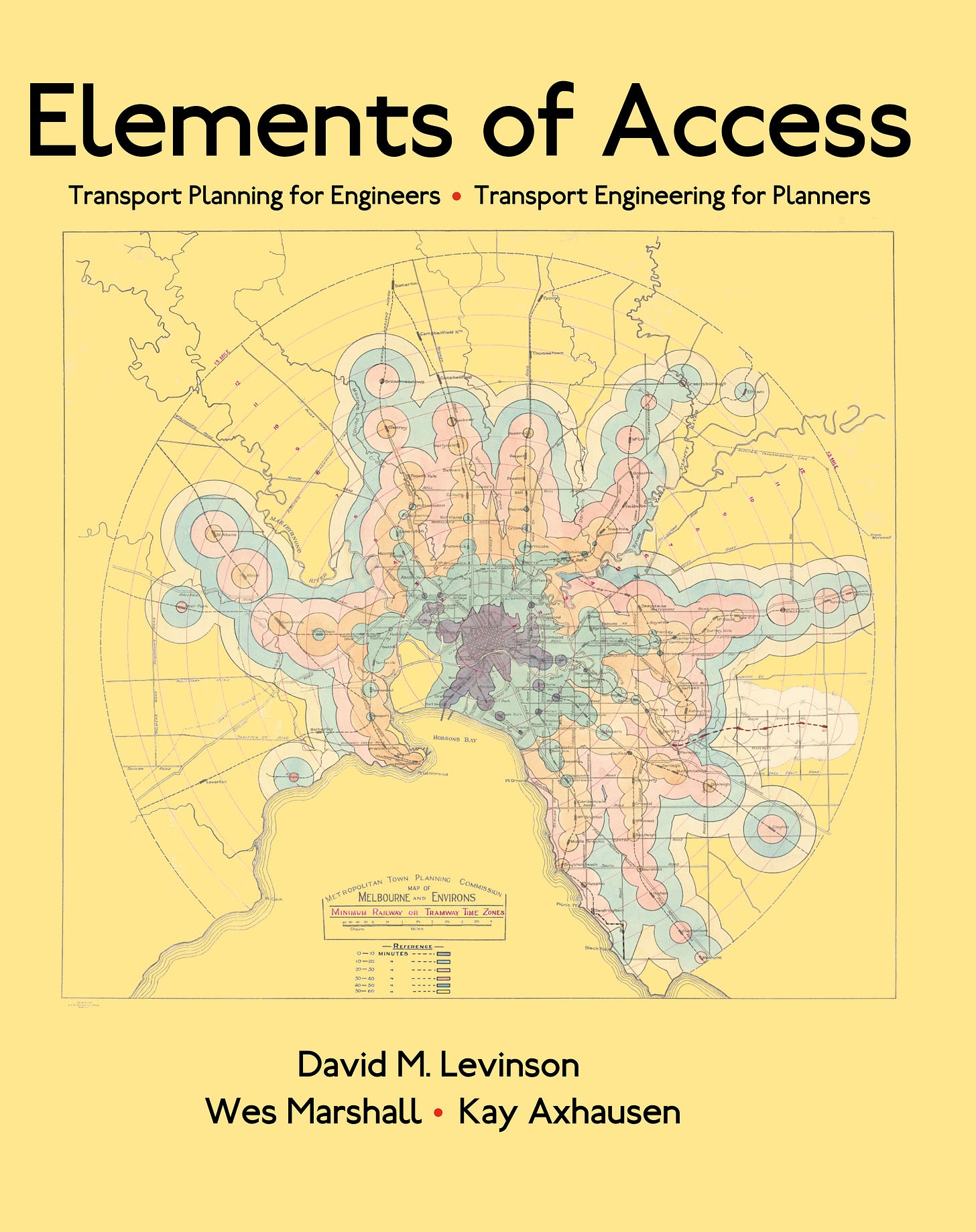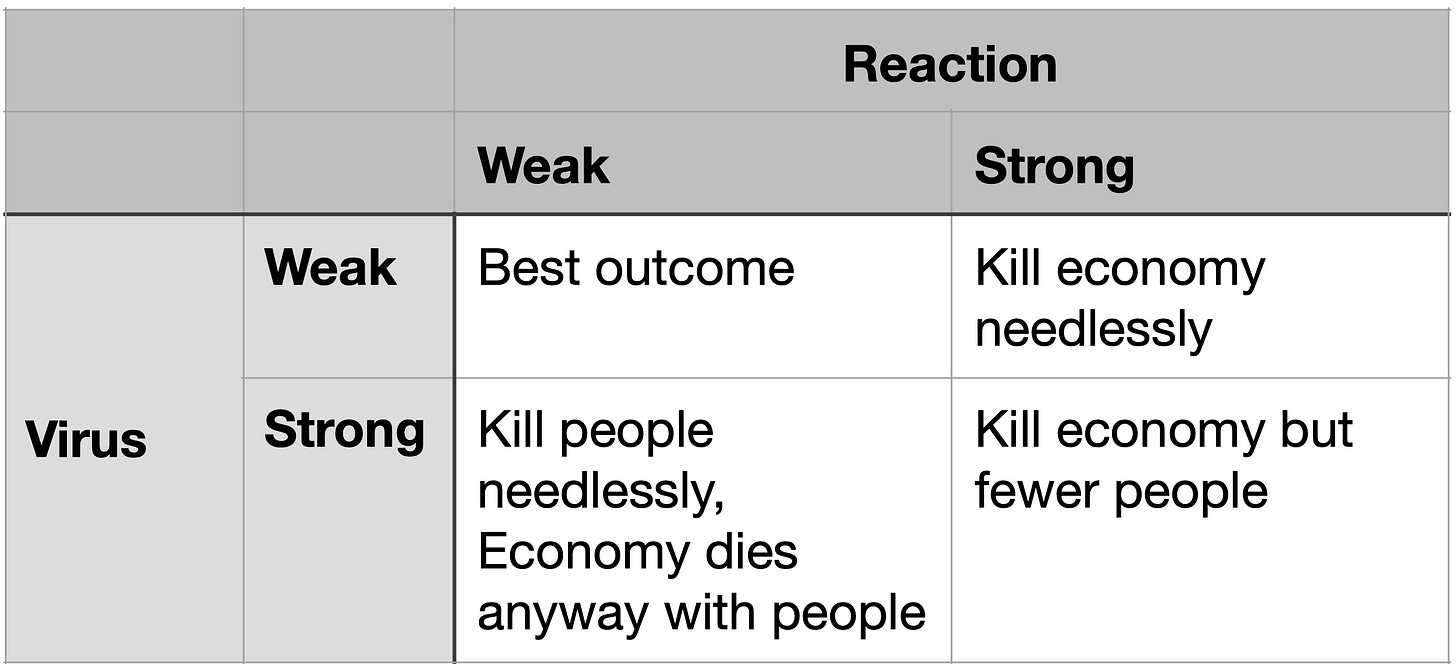Transportist: April 2020
United we fall, Divided we stand.
Welcome to the latest issue of The Transportist, especially to our new readers. As always you can follow along at the transportist.org or on Twitter. The armageddon of the month, Covid-19, is rearing its logistically, not exponentially, growing head. (I am sending this early, since at this rate, there may be no April.)
Open Access Access

ELEMENTS OF ACCESS – OPEN ACCESS
We are pleased to announce that you can now download a PDF version of Elements of Access: Transport Planning for Engineers, Transport Engineering for Planners from the University of Sydney eScholarship Repository. (Free)
[That’s right, we made Elements of Access a free download. Get your copy now. Read it. Make your students and friends and colleagues read it. No excuses. You have the time.]
Covid-19
Locally, we went to all-online mode at the University of Sydney, as did many other universities, and all our travel and other operational expenses were frozen (this was before the international aviation system more-or-less shut down), so I won’t see many of you in person this winter/summer as I had hoped. I am also sad because we had to switch my Transport Policy, Planning and Deployment class’s game night from being an in person (board game) activity to one where students played electronic games. Maybe one day, spatial distancing will be the problem, and they will want us to huddle together again to improve our immune systems.
We saw lots of other novel behaviours this month.
Hoarding was perhaps the most remarked on at first. Toilet paper hoarding in Australia became a thing. Remember, the only thing to fear is fear itself. But if everyone thinks everyone else is afraid, it is rational to be afraid (and hoard). I would argue hoarding and shortages are the natural consequences of a just-in-time economy transforming into an inventory-based economy. This is not inherently irrational when supply interruptions (due to possible store closures, illnesses taking out the supply chain, etc.) are considered. It is derided as selfish, I think that is needless moralising. Now needless moralising may itself be rational for society to engage it, to convince everyone to behave well, or to signal you align with society, but I prefer facts.
Is everyone so panicked because they have been primed by decades of dystopian media and Zombie Apocalypses that they think *this* is the big one? Will we be better prepared when (not if) a much more fatal epidemic hits? A twitter poll says 2/3 of you think so. I remain skeptical. If the response is successful, and fewer than expected/threatened die, people will believe collectively pushing the self-destruct button and blowing up the world economy (people’s lives and employment, not just their retirement portfolios) an over-reaction. If it is unsuccessful, and many people die, there may be more hope for people taking the warning signs more seriously in the future. It’s a dilemma.
As in the table below, we are collectively fucked unless the virus is a lot weaker than evidence suggests (and people don’t get it yet). (The virus, of course, is what it is, though there is uncertainty about that (since as of this writing, we don’t know the true infection numbers, as most people who have been infected have not been tested), it is only our collective reaction that we collectively control at this point).

The stock market crash (which takes coronavirus as an organising principle, but was long overdue) brings it nearer in line with long-term trends (it had been seriously overpriced, as readers have been warned. [The Precarity of Our Situation][What a Logistic Curve of the S&P 500 Tells Us]).
Oh and oil prices collapsed too. If this sustains, bad news for the environment and public transport. In the mean time, the economic collapse buys us a few extra days of CO2 emissions I suppose.
Incoming President Biden (10 months away if the gerontologically-challenged leadership of the US survives intact), (we’re all thinking it) obviously a fan of high-speed rail, should consider renationalising all the mainline US Railroads and strip them of right-of-way for his HSR system if their low stock prices persist. It would be cheaper than negotiating piecemeal. (I first suggested this 11 years ago). Commercial railroading is in long-term decline with its main commodity, coal, on the downslide.
"Let's consider a reevaluation of the situation in which we assume that the stuckness now occurring, the zero of consciousness, isn't the worst of all possible situations, but the best possible situation you could be in. After all, it's exactly this stuckness that Zen Buddhists go to so much trouble to induce...."
-- Robert Pirsig from Zen and the Art of Motorcycle Maintenance
In happier matters, I am thinking about a Reviewers Guild to help break academics from their subservience to the for-profit journal publishing hegemony. An editable Google Doc is available to read at the link. Let me know if you are interested in participating.
Transportist Blog
ARE YOU SICK OF/FROM TRB — You are more than twice as likely to report having gotten sick if you attended TRB (33.8%) than otherwise (15.4%). Hmm. Wonder what you were sick from?
FOGGY BOTTOM TOP D.C. NEIGHBORHOOD FOR WALKING ACCESSIBILITY, UMD REPORT FINDS
Transport Findings
Travel in the time of Covid-19. Transport Findings welcomes short papers on the impact of the virus on travel behavior and traffic or on the impact of travel on virus spread.
[Our friends at the Open Access EJTIR have a similar call: Mobility and Logistics in the Era of the Coronavirus Pandemic.]
Park & ride – Exploring the demand effects of parking charges by Erik Bjørnson Lunke
WalkSydney
Whose turn? The strange case of Golden Grove Street and Darlington Road
Don’t push the button … our Transport Minister announces:
And we had just begun our campaign “How to let Transport for NSW know we want automated pedestrian actuators …” So, we’ll take our victory. We want them throughout greater Sydney (and the world).
News & Opinion
Coronavirus affects
Traffic jams 60km long as desperate travellers choke Europe's borders
Pedestrian numbers drop in the [Melbourne] CBD as pandemic keeps people home [Jealous that Melbourne has this data]
City traffic levels plummet 35% following new executive orders
Pollution is plummeting in Italy in the wake of coronavirus, emissions data show
To limit coronavirus risks on public transport, here’s what we can learn from efforts overseas
¡Atención! Alcaldía habilita ciclovía permanente por coronavirus
Transit and Microtransit
Mystery of the Missing Bus Riders … [uh, full employment, cheap fuel, buses are (sadly) an inferior good, transit service cutbacks — not much of a mystery, really.]
Human-Driven Vehicles, Signs, Signals, Sensors, and Markings, and Roads
Vehicle Automation
Ride-hailing, Car-sharing
Walking, Biking, Micromobility
Interesting Research (by others)
The Cost of Convenience: Ridehailing and Traffic Fatalities [NBER Paper]
The Talking Headways podcast interviews Geoff Boeing, one of the best younger minds in planning
Evidence for localization and urbanization economies in urban scaling
Books
The 30-Minute City: Designing for Access. (2019) By David M. Levinson (Book 5 in the Access Quintet)
A Political Economy of Access. (2019) By David M. Levinson and David A. King (Book 4 in the Access Quintet)
Elements of Access: Transport Planning for Engineers, Transport Engineering for Planners. (2018) By David M. Levinson, Wes Marshall, Kay Axhausen. (Book 3 in the Access Quintet)
Spontaneous Access: Reflexions on Designing Cities and Transport (2016) by David Levinson. (Book 2 in the Access Quintet)
The End of Traffic and the Future of Access: A Roadmap to the New Transport Landscape (3rd edition). (2017) By David M. Levinson and Kevin J. Krizek. (Book 1 in the Access Quintet)
Metropolitan Transport and Land Use: Planning for Place and Plexus (2018) by David M. Levinson and Kevin J. Krizek.
The Transportation Experience: Second Edition Garrison, William and Levinson, David (2014)



